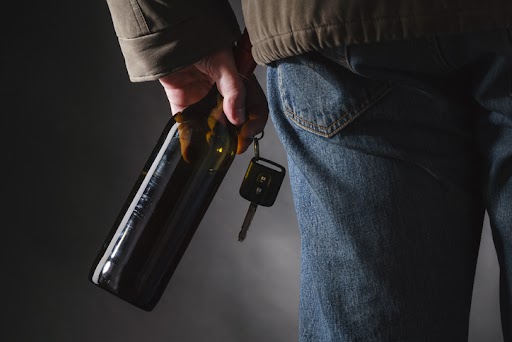Drunk driving is never acceptable under any circumstances. In North Carolina, the categorization of offenses related to drunk driving differs based on various factors such as prior convictions and blood alcohol concentration (BAC) at the time. Here are the DWI offense levels in North Carolina.
Driving While Impaired (DWI)
In North Carolina, a person can be charged with DWI if they are found to have operated a motor vehicle while under the influence of drugs or alcohol. The state has a legal blood alcohol concentration (BAC) limit of 0.08% for drivers aged 21 or older and 0.04% for commercial drivers. DWI in North Carolina is considered a misdemeanor offense.
There are certain grossly aggravating factors, which could increase the severity of the crime. Such factors include:
- Driving with a revoked/suspended license for an alcohol-related offense;
- A prior DWI conviction within the past seven years;
- Causing serious injury to another person while impaired;
- Driving with someone under the age of 18;
- Driving with someone with the mental development of someone under the age of 18; or
- Driving with someone with a physical disability that prevents them from exiting the vehicle on their own.
Aggravated Level One DWI
If someone is found with 3 or more of the above grossly aggravating factors, this can result in a charge of Aggravated Level One DWI, which is considered a felony in North Carolina and is the most severe DWI offense. Someone convicted of this crime faces 1-3 years of confinement and a fine of up to $10,000. The purpose of Aggravated Level One DWI was to target individuals who repeatedly drive while impaired.
Level One DWI
As with Aggravated Level One DWI, Level One DWI is a felony offense. It occurs when two grossly aggravating factors (or one related to age or disability) apply to your case. It is punishable by a fine of up to $4,000 and 30 days to 24 months in jail.
Level Two DWI
Level Two DWI is a misdemeanor offense that’s applicable when the defendant has one grossly aggravating factor (not related to age or disability) present. It is punishable by a fine of up to $2,000 and a jail sentence of one week to one year.
If there are no grossly aggravating factors, the DWI would be considered level 3, 4, or 5. The judge or jury will weigh aggravating and mitigating factors.
Aggravating factors include things such as:
- Gross impairment of defendant’s faculties while driving or a BAC of 0.15% or more;
- Especially reckless or dangerous driving;
- Negligent driving that led to a reportable accident;
- Driving on a suspended or revoked license;
- Two or more prior convictions of a traffic violation for which at least three points were assigned;
- Speeding of at least 30 miles per hour over the speed limit;
- Passing a stopped school bus;
- And More!
Mitigating factors include things such as:
- Slight impairment solely from alcohol and a BAC not exceeding 0.09%;
- Safe and lawful driving at the time of the offense (but for the defendant’s faculties being impaired;
- A safe driving record;
- Impaired caused primarily by a lawfully prescribed drug for an existing medical condition, with the amount of the drug taken being within the prescribed dosage;
- And more!
Level Three DWI
If the aggravating factors outweigh the mitigating factors, the DWI is considered a level three, which is a misdemeanor. Level Three DWI is punishable by up to $1,000 and 72 hours to 6 months in jail.
Level Four DWI
If mitigating factors and aggravating factors balance each other out, it’s considered a level four DWI, which is a misdemeanor. Level Four DWI is punishable by a fine of up to $500 and 48 hours to 120 days in jail.
Level Five DWI
If there were no aggravating or mitigating factors, or if the mitigating factors outweigh aggravating factors, it’s considered a level five, which is a misdemeanor. A Level Five DWI is punishable by a fine of up to $200 and 24 hours to 60 days in jail. Level Five is the most common for first-time DWI offenders who had no aggravating factors.
Driving After Consuming Under 21
Since the legal age for consuming alcohol in North Carolina is 21, the state has a firm zero-tolerance policy for those under the age of 21 who drive after consuming any amount of alcohol and consider this offense a misdemeanor.
While the aforementioned offenses provide a good guide for what to expect in North Carolina, the specific charges and penalties can vary for each case, depending on the specific facts, circumstances, and aggravating factors. If someone is convicted of a drunk driving offense, they may face a variety of penalties, such as fines, license suspension, mandatory alcohol education programs, probation, community service, and imprisonment. With so much at stake it’s important to speak with a qualified North Carolina DWI defense attorney.
Hancock Law Firm, PLLC Helps Those in North Carolina Who Have Been Accused of DWI
If you have been arrested for DWI, you may have options. You have the right to defend yourself. Your best bet of doing so successfully is with the help of a knowledgeable and experienced North Carolina criminal defense attorney who understands what you are up against and will fight on your behalf. However, time is of the essence, which is why it’s best to contact a qualified attorney as soon as possible.
At Hancock Law Firm, PLLC, we fully understand what is at stake and will do everything that we can to help you to fight this charge. To learn more or to schedule a free consultation, contact us today!


